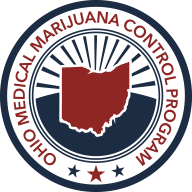Ohio law requires the Ohio Medical Marijuana Control Program to be fully operational by September 2018.
What 21 original medical conditions qualify a patient for treatment with cannabis?
AIDS, Amyotrophic lateral sclerosis or Lou Gerhig’s disease, Alzheimer’s disease, Cancer, Chronic traumatic encephalopathy or CTE, Crohn’s disease, Epilepsy or another seizure disorder, Fibromyalgia, Glaucoma, Hepatitis C, Inflammatory bowel disease, Multiple sclerosis, Pain that is either chronic and severe or intractable, Parkinson’s disease, Positive status for HIV, Post-traumatic stress disorder, Sickle cell anemia, Spinal cord disease or injury, Tourette’s syndrome, Traumatic brain injury and Ulcerative colitis.
Medical Necessity
Individuals will register as a medical marijuana patient through physicians certified to recommend medical marijuana. The physician must diagnose or affirm a diagnosis for a qualifying condition, review the patient’s drug history in the state’s controlled substances database and discuss the pros and cons of marijuana use before signing off on a recommendation. Patients will receive an electronic ID card that can be used to buy marijuana from a state-licensed dispensary.
New Conditions Added Process
The Ohio State Medical Board will begin accepting petitions for new qualifying conditions Nov. 1. Submissions will be collected through an online application process from then until Dec. 31.

